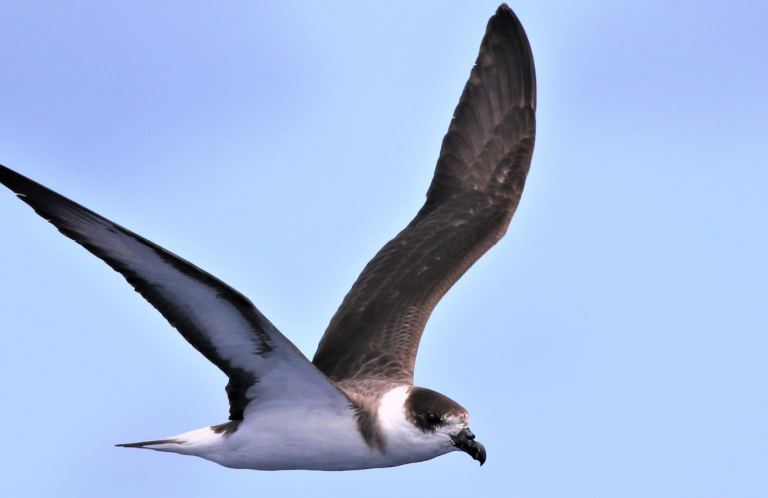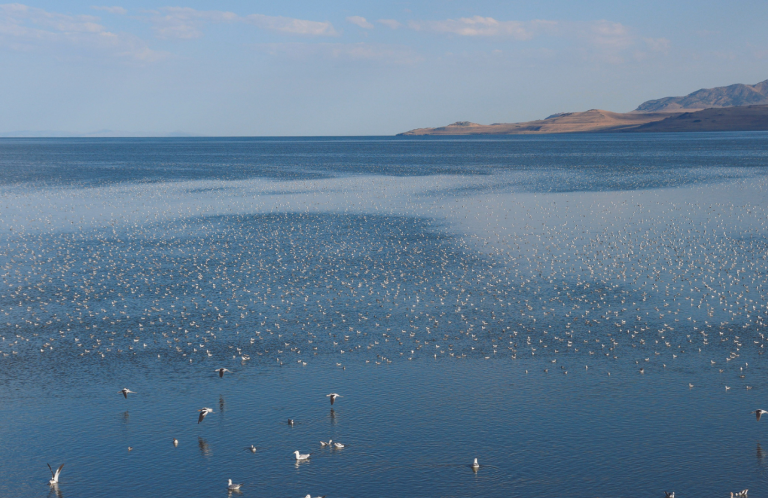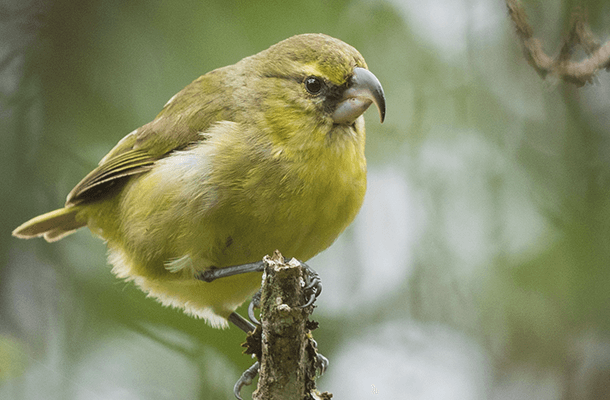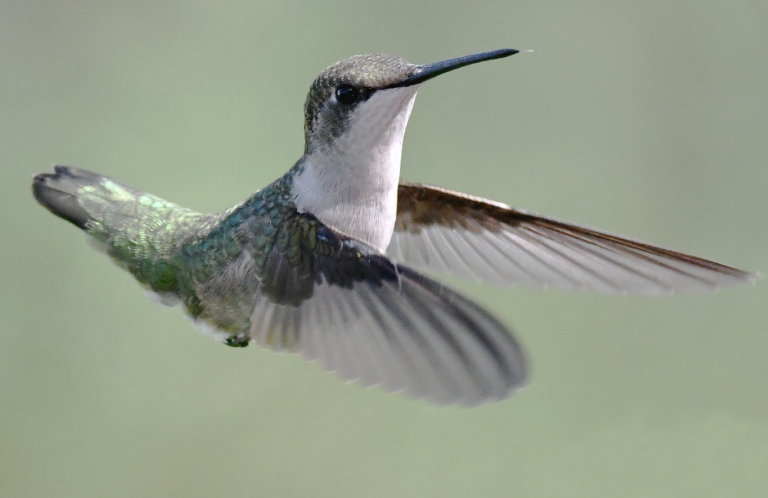25 Amazing Images of Bluebirds
Bluebirds are among the most-beloved songbirds in North America, and it's easy to see why. These musical birds brim with so much color and charm that they've come to embody happiness and hope for many. To celebrate these charismatic birds, we've compiled 25 fantastic pictures of bluebirds, which we've broken down by species below.
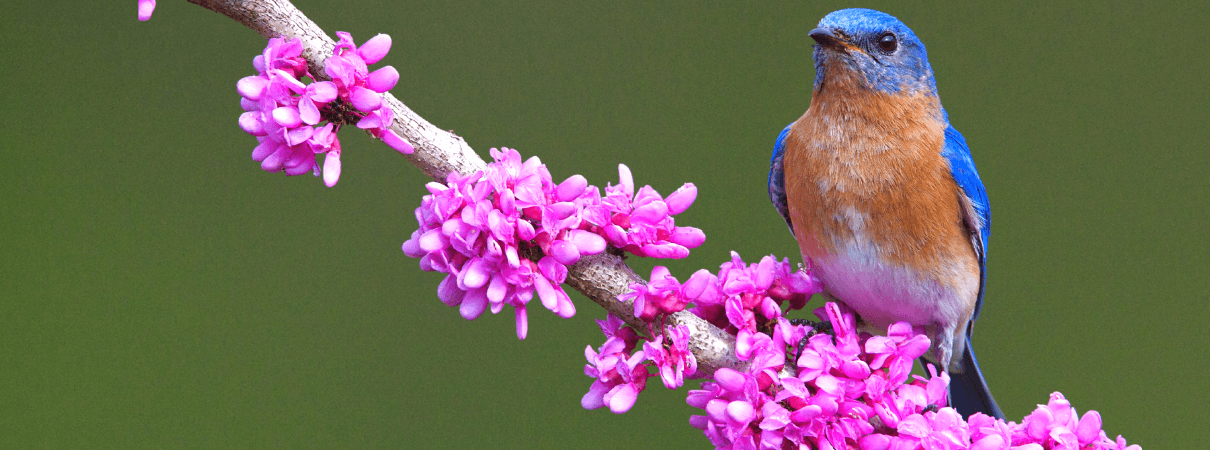
Before jumping in, take a quick look below for tips on identifying the three bluebird species. Also, don't forget to scroll to the bottom: We've included some important information on how you can help protect birds and bird habitat.
What Are the Three Types of Bluebirds?
There are three bluebird species, and all are found in North America: the Eastern, Western, and Mountain.
The adult male Mountain Bluebird is the easiest to identify thanks to its striking all-sky-blue coloration. Male Eastern and Western Bluebirds can be more challenging. A good way to differentiate the males of these two species is by noting neck and shoulder plumage. Eastern Bluebirds have rust-colored throats and blue shoulders, while Western Bluebirds have cobalt throats and chestnut shoulders.
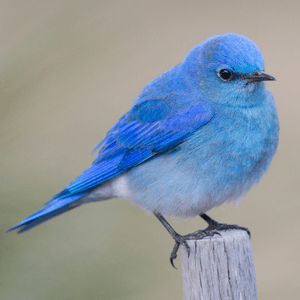
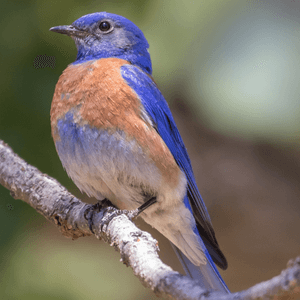
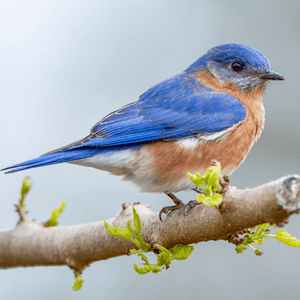
Male and Female Bluebirds
So what about telling males and females apart? Like most bird species, male bluebirds are more brightly colored than their female counterparts. Although females do sport blue feathers, particularly on their wings and tails, their overall appearance otherwise tends to be drab.
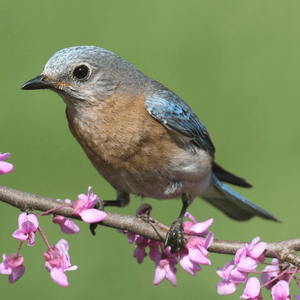
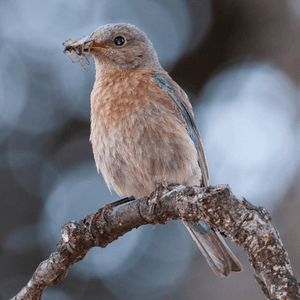
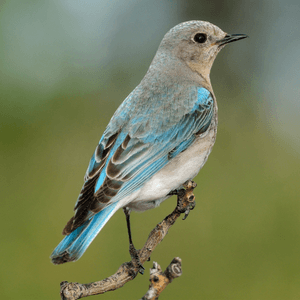
Eastern Bluebird Pictures
Eastern Bluebirds are common across the eastern United States during summer months. This changes in the autumn, as bluebirds in the Midwest and New England migrate to the Mid-Atlantic and southeastern United States and Mexico.

Eastern Bluebird populations tumbled in the early 20th century following the introduction and rapid range expansion of the European Starling and House Sparrow, which out-compete bluebirds for nesting cavities. The situation began to improve in the 1960s with the introduction of successful nest-box programs. Since then, Eastern Bluebird populations have been on the rise and are now estimated to total 23 million breeding individuals.
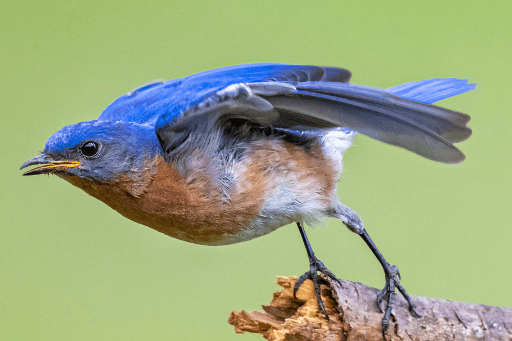
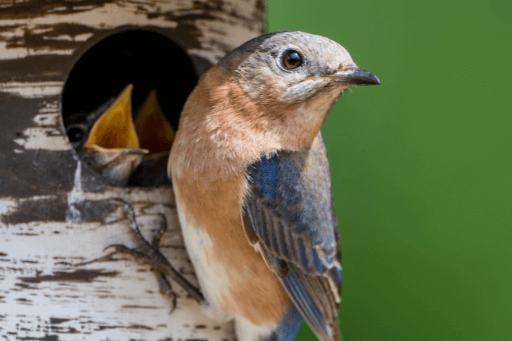
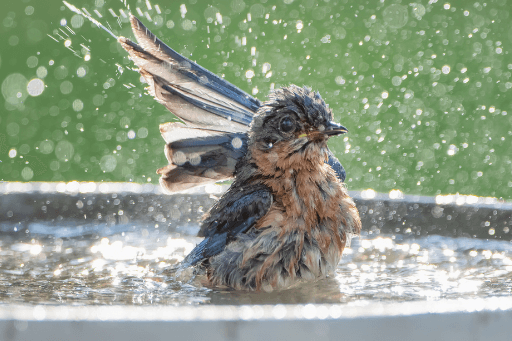
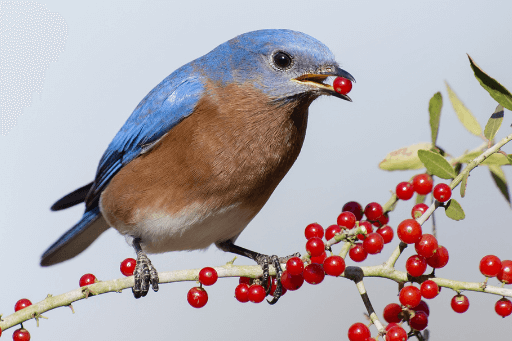
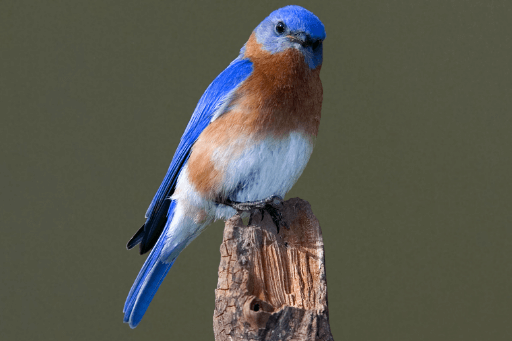
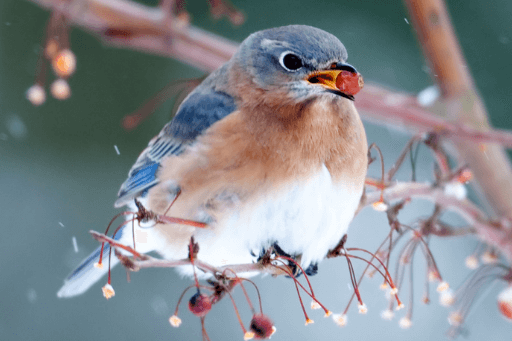
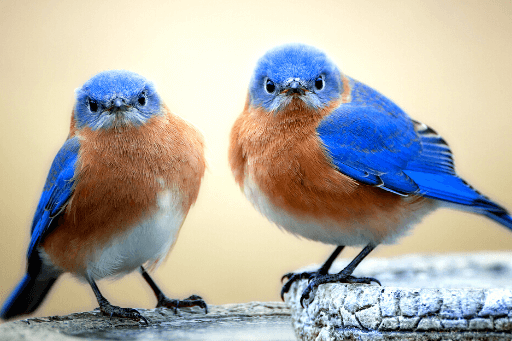
Western Bluebird Pictures
As their name suggests, Western Bluebirds are found throughout large swathes of the western United States. In some regions, Western Bluebirds are year-round residents; in others, the birds migrate to California, Arizona, New Mexico, and Mexico during winter months.
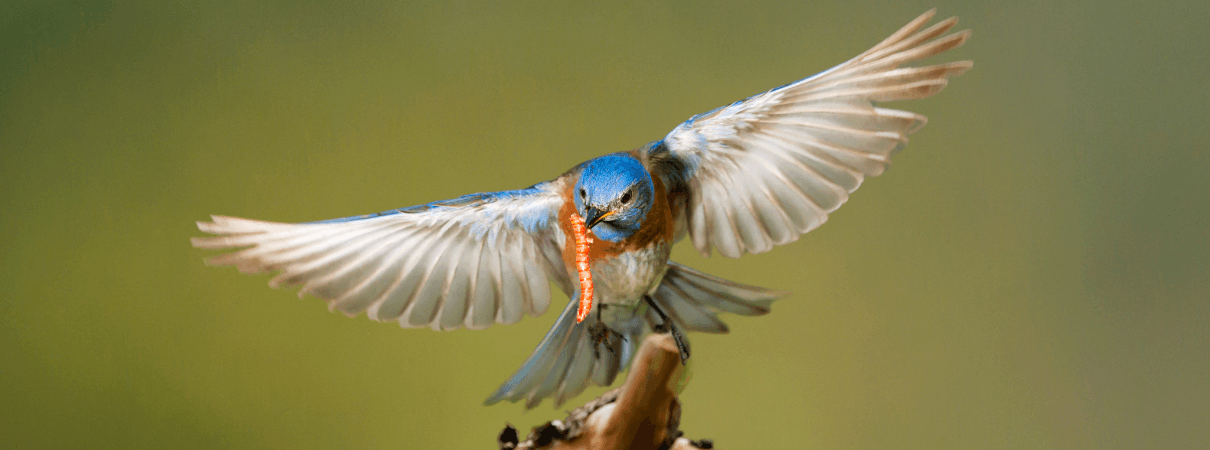
Although Western Bluebird populations are stable, they aren't free of threats. These include logging, fire suppression, and development. In addition, Western Bluebirds are also vulnerable to the challenges posed by aggressive introduced House Sparrows and European Starlings, which occupy valuable nesting holes. Current breeding populations of Western Bluebirds are estimated to total 6.8 million individuals.
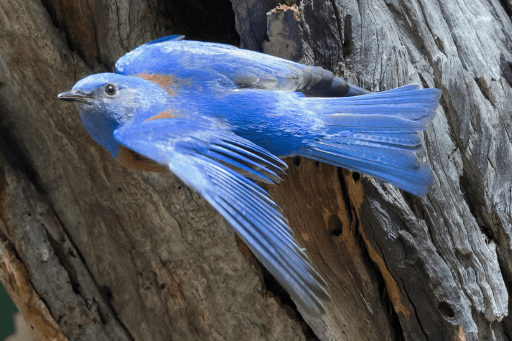
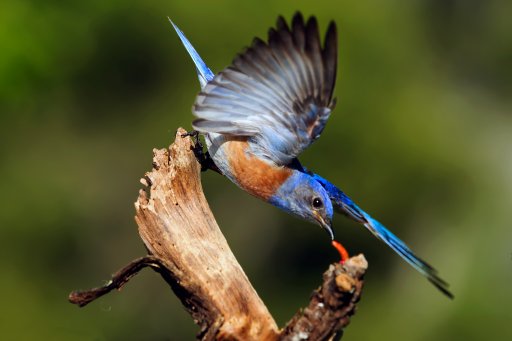
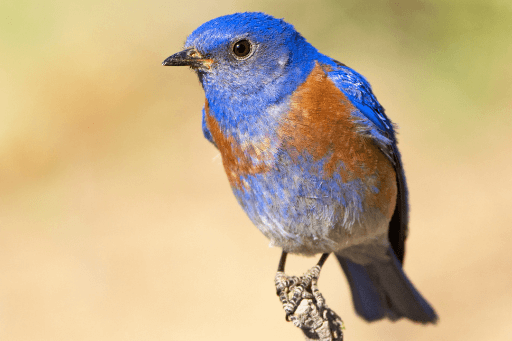
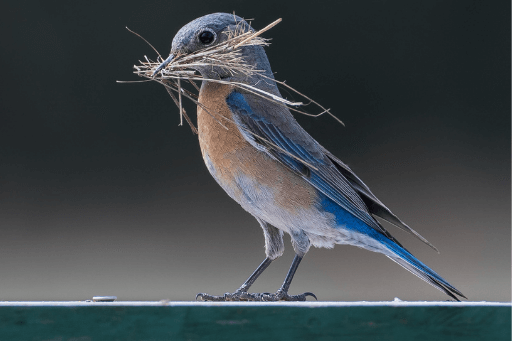
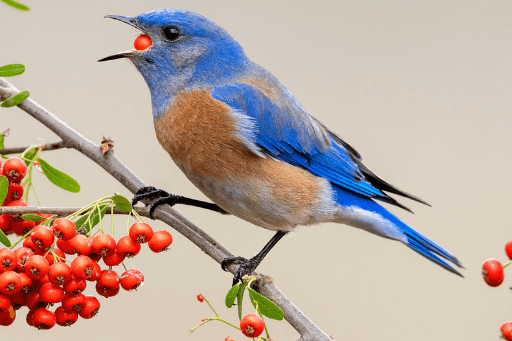
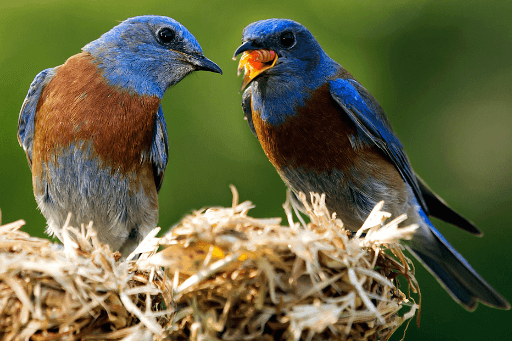
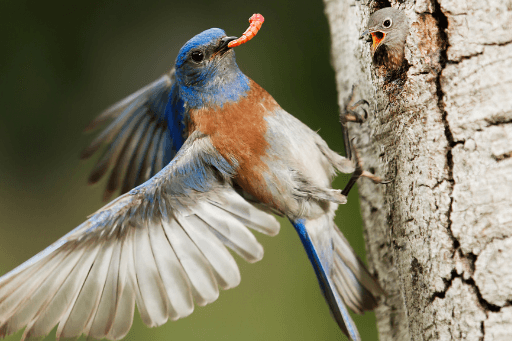
Mountain Bluebird Pictures
The Mountain Bluebird is found across most of western North America. While some areas of the West are home to resident Mountain Bluebird populations, many of these birds migrate southward, spending winters in the U.S. Southwest, Mexico, and portions of the southern Great Plains.
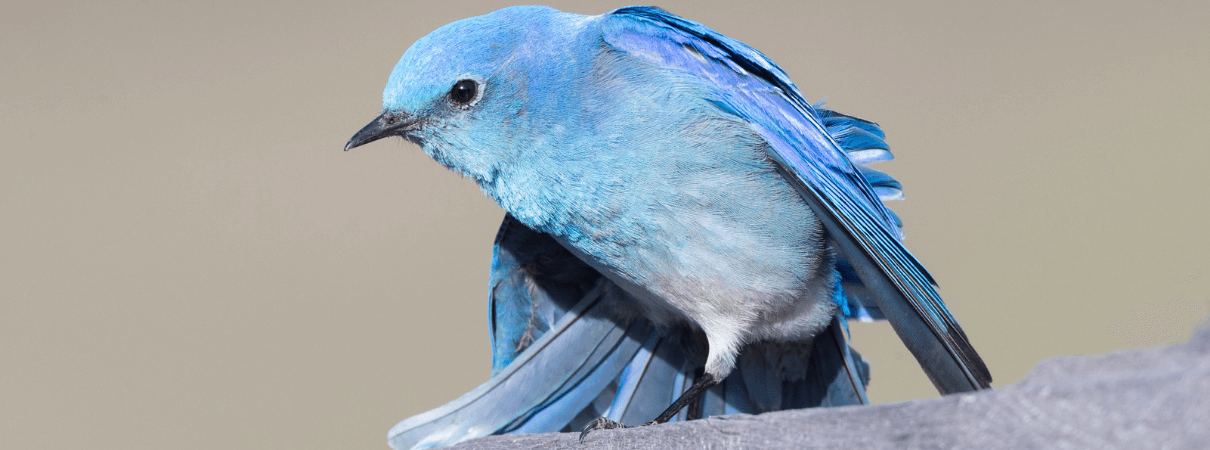
Mountain Bluebird populations have declined by nearly a quarter over the last half century. This is due to a loss of open foraging areas as well as competition with non-native species for nesting cavities. Current breeding populations of Mountain Bluebirds are estimated to total 4.6 million individuals.
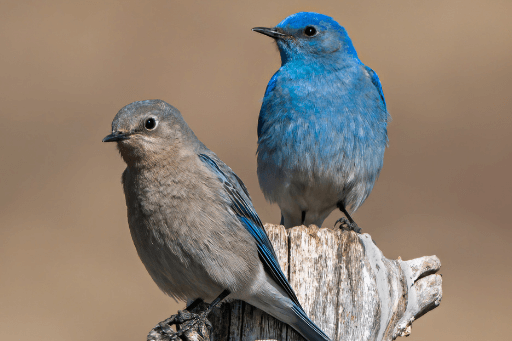
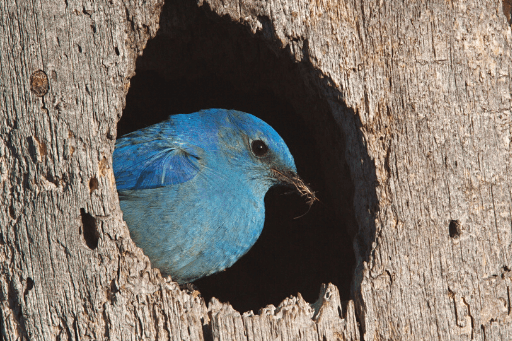
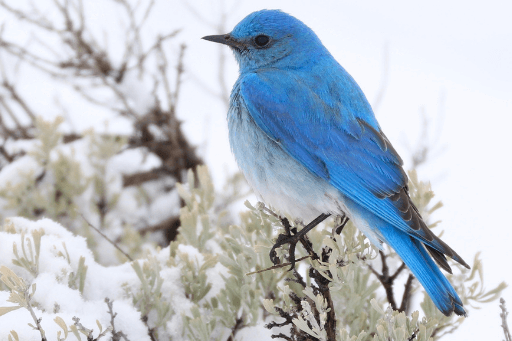
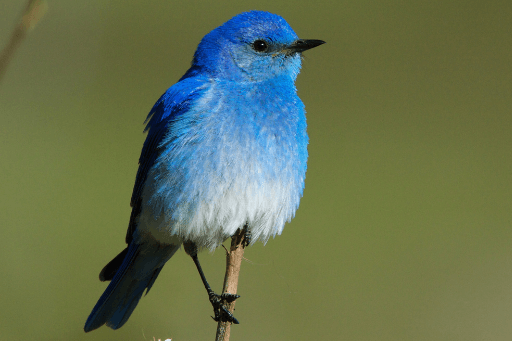
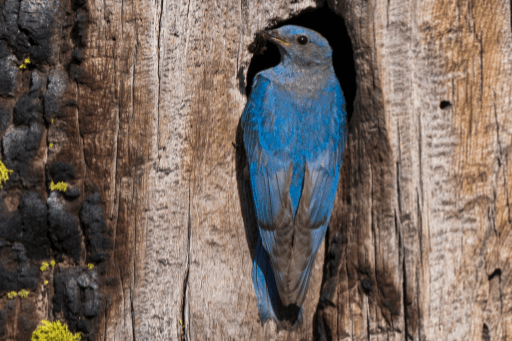
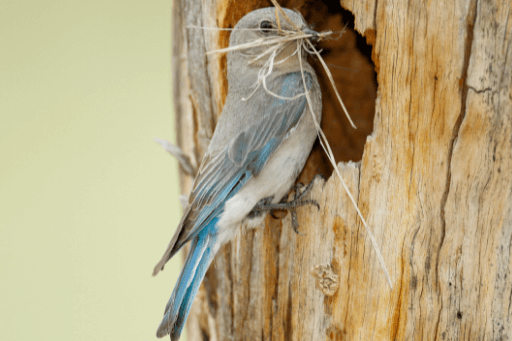
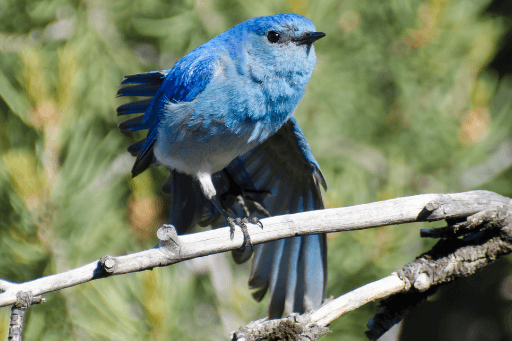
Birds in Trouble
While some bluebird populations have rebounded or held steady in recent decades, others have declined. They aren't alone. Many birds in North America face serious threats.
In less than a single human lifetime, 2.9 billion breeding adult birds have been lost from the United States and Canada, across every ecosystem. Scientists identify habitat loss as the biggest overall driver of bird declines. But birds also face threats from cats and other invasive species, glass collisions, exposure to pesticides, and climate change, among other things.
Protecting birds from these dangers is a major undertaking — and we need your help. You can get started by living a bird-friendly life, taking action for birds, or making a donation to support ABC's bird conservation mission.
 | Kathryn Stonich teaches English for Bryant & Stratton College online. She is an avid backyard birder and advocate for pigeon and dove rescue. |





































